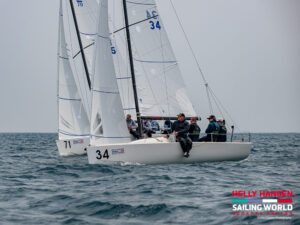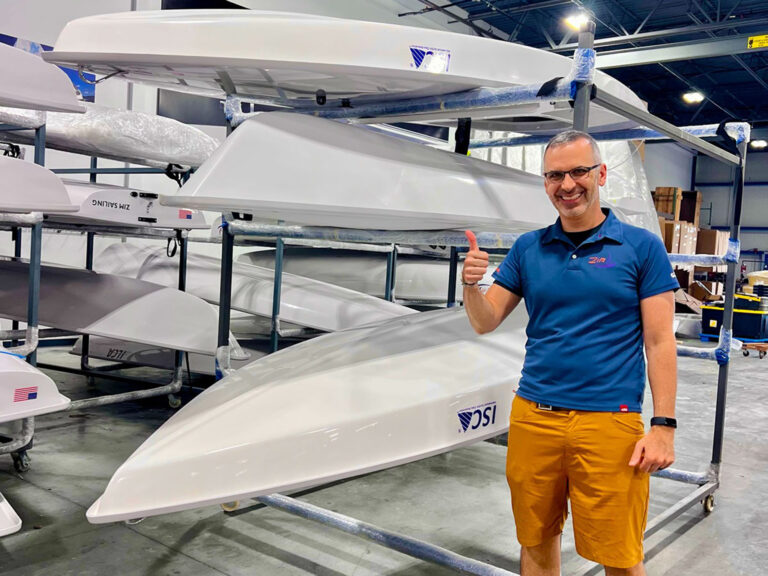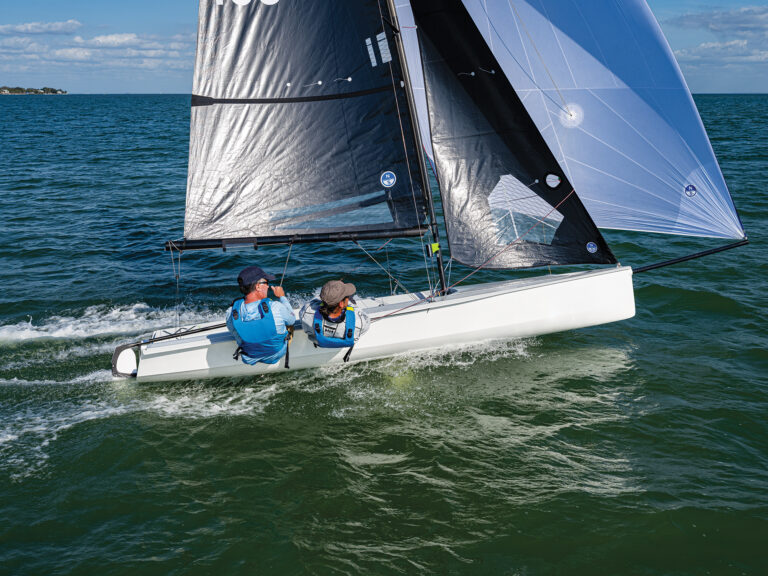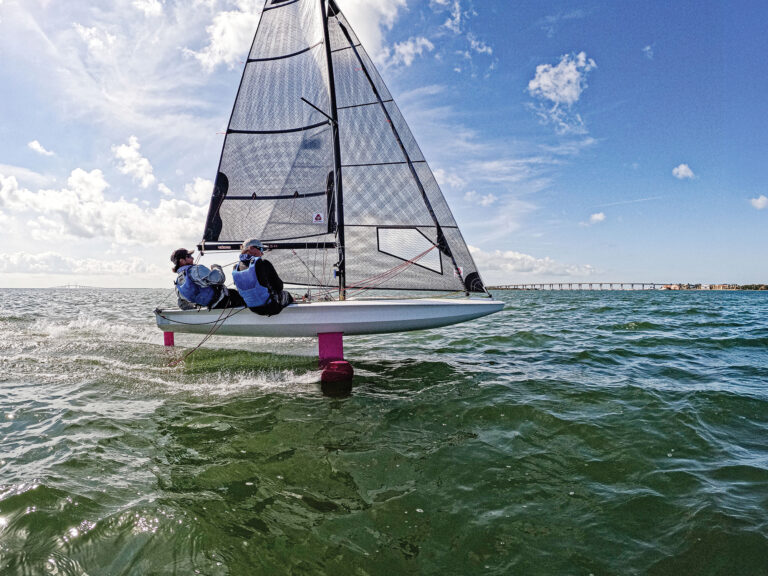
My daughter likes to watch the television series Friends while studying. We’ve had discussions about how this either helps or hurts her ability to study and absorb the material. She claims it relaxes her and helps her study for longer. I say she can only do one thing at a time, and what seems to be multitasking is actually switching between two different things.
I recently sailed the J/70 Worlds in Marblehead, Massachusetts, on board Glenn Darden’s Hoss. My job is tactician, but I also trim the main. We sailed pretty well and finished 14th, but I was left with the strong impression that we would’ve done better if I had been either a main trimmer or a tactician, but not both.
Sailing a J/70 upwind at a high level requires a number of things to be done well; steering, main trim, backstay tension and jib trim are all important. As boats get closer together, and as the sea state gets rougher, it’s even more difficult to keep the boat going high and fast all the time. As we trained for the worlds, we got faster by improving each of the key inputs, to the point where we had competitive speed. Not as fast as the top five teams, but in the game. And this turned out to be the case in the regatta. When we were all dialed in to speed, we could sail with nearly any boat, and sometimes gain.
What I didn’t realize was how this intense focus on speed was affecting our tactics. We had two great forward crew who talked about the wind ahead, the position of the mark and the spacing of the other boats. But the decision making was mine. I was preoccupied with going fast with proper main trim and backstay. We were not using our collective brain power as effectively as we could, and this caused a number of poor tactical decisions. My attempt at multitasking wasn’t working.
On the J/70, we have four people. The helmsperson is just that: focused on driving. It’s a hard boat to steer really well, especially in rough water, so the rigid attention to steering makes sense. The next person forward is the main trimmer. Together with the helm, they focus on speed and moding the boat for every situation. They have the mainsheet, traveler and backstay, so the tools to control the power in the sails are in their hands. However, as in our case, this person is often also the tactician because they are often the most experienced sailor on board. The forward two crew would help with calling the wind, course geometry and fleet position. The jib trimmer works the jib sheet and looks around, while the forward crew calls the near-term wind and waves. But the big decisions are made by the main trimmer.
Some of the top European J/70 teams have started to change these roles. They use the jib trimmer as the tactician. This person has some speed and handling duties, but they are much less frequent than the main trimmer, so they can spend most of their time looking up the course and figuring out where to go. This also facilitates a positive interaction with the forward crew, who is also free to analyze the wind and look for opportunities to make tactical gains. There is only one small catch: The view to leeward from the jib trimmer spot is restricted by the jib. The main trimmer does, therefore, need to describe what’s happening in the tactician’s blind spot. This takes less mind share, and the main trimmer is free to focus on speed.
On larger boats, there are more people to share the load, of course, but there are still only four primary jobs that have to be done well. The key to success is to find the best people for these jobs and let them focus on their responsibility. It makes no sense to double up like we were on the J/70. Even if one of your team is less experienced, you will get further if you give them a job, teach them how to do it well, then let them focus on it without interference.
For the coming J/70 season, our team is going to try switching our roles. I will move forward into the jib trimmer/tactician role, where I can focus on putting us in the best spot, and Charlie Smythe, our excellent jib trimmer, will move back to the main trimmer spot, where he can use all his talents and concentration to make us go faster.
Before next season, I encourage everyone to think about your team’s composition. Can it be improved by redefining roles? Change can be difficult, especially for teams that have been sailing together for a long time with people in the same roles. But change is good, and I’m confident it will be for us as well.









